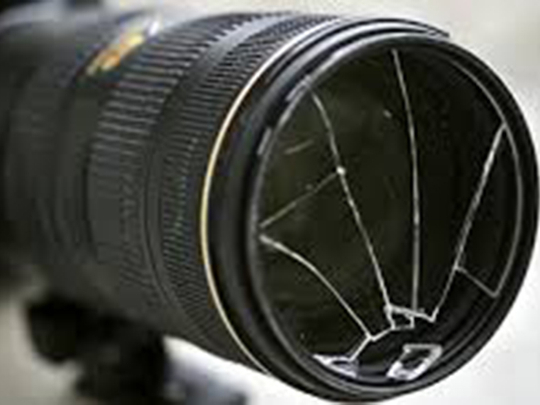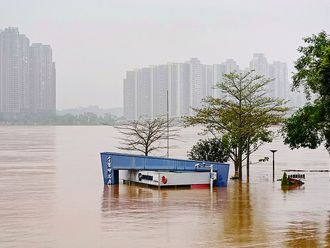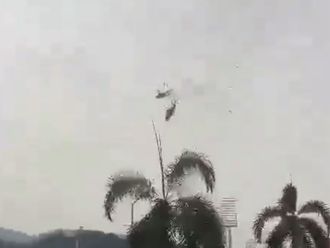How I survived Al Qaida
In my 15-year career as a journalist, the most terrifying moment for me was in April 2015 when Al Qaida militants seized control of my small city in Yemen’s province of Hadramouth. Within the first hours of the Al Qaida attack, clashes with local army troops erupted around the central bank building and other key government offices, a few metres from my house.
Those were horrible moments for my children and me as massive explosions rocked our house, keeping us awake for days. In the coming days, the militants sought to be friendly and hired local journalists to disseminate their propaganda.
As a journalist writing for English-speaking international media, I worked hard to be off their radar by not posting on Facebook – the Al Qaida usually went after journalists who were active on social media. I also avoided covering their social gatherings and sometimes did not take byline for stories that criticised their ruthless rule. Now, I see myself luckier than many colleagues who live under the threat of shelling. Many journalist friends have died. But Al Qaida was expelled from Al Mukalla and we now enjoy some peace.
— By Saeed Al Batati/Correspondent
Bullets, grenades and a birthday gift
The voice of one of my closest friends crackled from my Nextel phone. It was almost impossible to understand. He was desperately crying and shouting something like “They will kill us all”. It took me some time to grasp that my newspaper in the city of Nuevo Laredo in Tamaulipas, Mexico, was under attack.
This was the night of February 6, 2006. An armed group broke into my newspaper office, spraying the walls with more than 100 bullets. They also lobbed two grenades, and the blasts shook the building and our spirits.
The reason for their apparent merriment: “We published something the mafia did not like,” my friend told me. The break-in was just a warning. By the time I reached the newsroom later that night, the unmistakable smell of gunpowder and clouds of dust from concrete pulverized by AK47 rifles was settling in. My dear friend and colleague Jaime Orozco Tey, who was celebrating his birthday that night, got an unexpected gift: a bullet scraped his spine, leaving him with a permanent spinal injury.
— By Seyyed de la Llata/Senior Designer
Brave journalist killed for pursuing a tax fraud story
Balochistan and the northwest region of Pakistan are considered dangerous areas for journalists – but the fact that reporters have lately been attacked in big cities like Karachi and Islamabad is shocking. The recent killing of fellow journalist Zeeshan Butt, while pursuing a story on taxes levied on shop owners, has come as a complete shock to me.
The haunting audiotape of his last phone conversation, in which he is frantically calling for help and then the sound of gunshots which silenced him forever, is the worst fear of any journalist.
Corruption, narcotics, land and arms mafia are considered the red line for journalists – dig deep into these stories and you might get killed. Take the terrifying case of Wali Khan Babar, a journalist from Karachi who was murdered in 2011 for doing a story on gang violence. The matter didn’t end there – all eyewitnesses to his murder were killed one by one. It shows how vulnerable journalists actually are.
— By Sana Jamal/Correspondent
I was threatened for taking a picture
The smell of paraffin from the helicopter engines could not mask the stench of the 13 men who had disembarked and literally set foot at the Edwin Andrews Airbase in Zamboanga del Norte on the night of October 2, 2000.
One of the passengers of the three UH-1H that arrived that evening was Filipino evangelist Wilde Almeda, who suffered a stroke in captivity and was being carried in a stretcher by his followers who were held captive by a faction of the Abu Sayyaf for 93 days.
“Do not take any pictures!,” shouted one Army captain whose nameplate I had difficulty seeing in the darkness, as then Armed Forces Chief General Angelo Reyes arrived. The warning not to take photos came late for me by a split second as my camera flashed. “Who was that!” the captain hollered. I silently tried to melt in the darkness but the military officer was keeping track of my motions. “Next time you do that again and I’ll have you detained and charged,” he barked. Seventeen years after that incident, conditions for Filipino journalists remain restrictive and harsh.
— By Gilbert P. Felongco/ Correspondent
My friend was beaten up and then charged with assault
The country’s police has become a law unto themselves, says Zimbabwean journalist Obey Manayiti, 31. Ahead of the November 2017 military intervention, which ended the 37-year rule of strongman Robert Mugabe, Manayiti was arrested and assaulted.
His crime? He was reporting on a controversial operation that saw police officers use tyre-deflating spikes to stop illegal private taxi operators. The operation had been blamed for a number of deaths. On arrival at the station, the police officers who had assaulted him charged my blood-soaked friend with assault. “I was fearing for my life,” he says of the encounter. “They were using all forms of threats.
“Since the military operation, police have now pledged to reform, but it’s only a pledge as of now,” he says. Only a few weeks later, dozens of ministers and police officers were themselves arrested as the military temporarily took control of state power.
— By Richard Chimbiri/ Copy Editor
The private militia thought I was a spy
People love to read stories from the eastern Indian state of Bihar, but it’s indeed very dangerous to be a journalist in current situation when attacks on journalists have become a routine feature. I have had several bitter experiences of reporting from the ground.
Recently, I had gone for a follow-up to the killing of six activists of Ranvir Sena, a private militia of upper caste landlords, in Aurangabad district. I was surrounded by a group of threatening young men with guns dangling from their shoulders.
They didn’t believe that I was a journalist and continued questioning me, suspecting I could be a spy. It was only after I took help from a local contact that they became normal and shared some “secret” information. I was also warned against writing anything adverse against them or what I had seen there. I faced a similar situation at Laxmanpur-Bathe in Jehanabad district, where I had gone to cover blood-chilling massacre of 58 villagers by the Ranvir Sena. Angry villagers heckled me and did not allow me to go inside their homes or share details, forcing me to exploit a local contact.
— By Lata Rani/Correspondent













